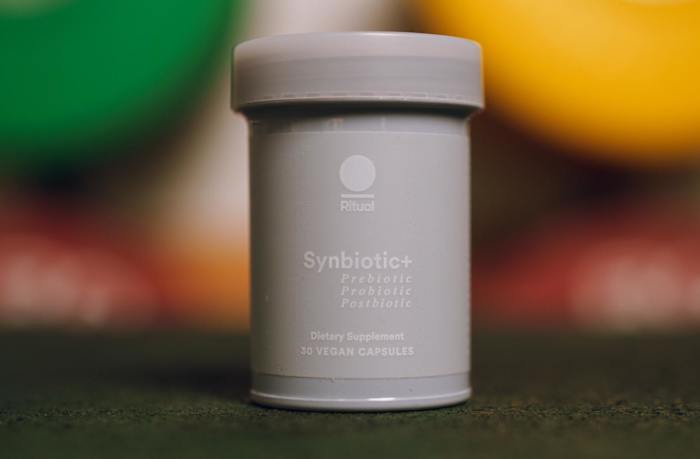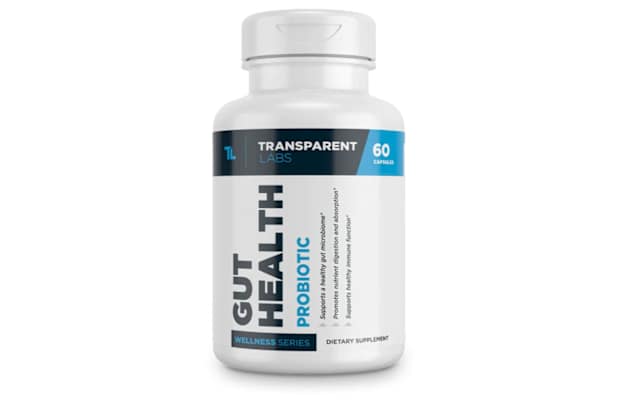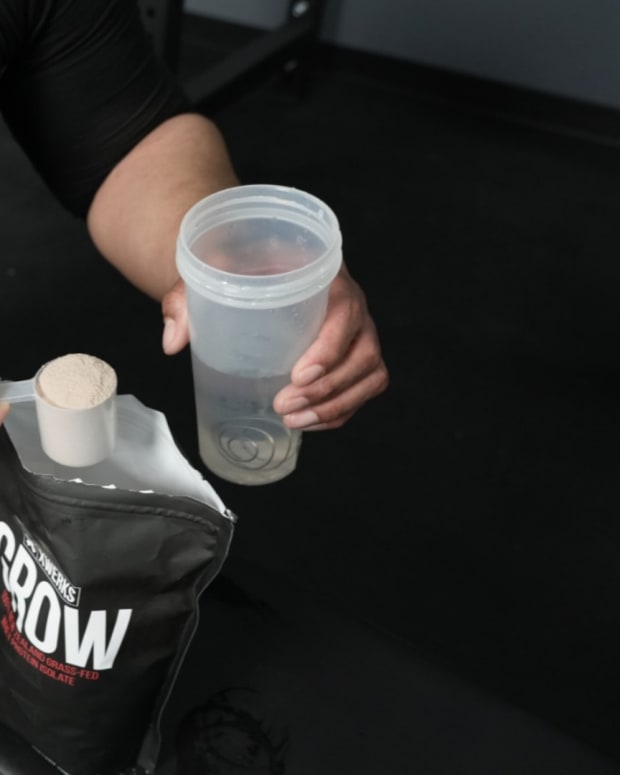The products featured in this article have been independently reviewed. When you buy something through the retail links on this page, we may earn commission at no cost to you, the reader. Sports Illustrated editorial staff are not involved in the creation of this content. Learn more here.
With “gut health” being among the biggest buzzwords in the health and wellness industry today, it’s no wonder everyone wants to know more. Creating and maintaining gut health is not just a trend but an essential aspect of overall health.
In this article, we’ll take a deep dive beyond the occasional occurrence of bloating and constipation into the importance of gut health. Read on for the 10 warning signs of an unhealthy gut.
Why Is Gut Health Important?
New evidence highlighting the importance of the gut (AKA the gastrointestinal tract) is unfolding daily. Of course, the gut is solely responsible for the digestion and absorption of vitamins, minerals and fluid, thus reducing your risk of malnutrition. Current research tells us that the gut contains 70 to 80 percent of your body's immune cells. It communicates with the brain about calorie intake, which impacts mood and general well-being. A healthy gut is vital for preventing allergies and infections and achieving overall health.
How Do I Know if My Gut Is Unhealthy?
How can you determine your own gut health? We outline 10 common signs of an unhealthy gut below.
Mental health issues (depression and anxiety)
Research continually shows us a strong connection between the gut and the brain, known as the gut-brain axis. Bryee Shepard, RD, says it is now recommended that healthcare professionals consider gut health when a patient presents with anxiety or depression because it appears the health of the gut is often directly related to these symptoms.
Chronic diarrhea
Chronic diarrhea is a symptom of an unhealthy gut and is defined as occurring three or more times within 24 hours and lasting at least four weeks. There are many causes of chronic diarrhea, as well as accompanying symptoms like bloating and stomach discomfort. It can cause malabsorption, a condition in which nutrients are not absorbed properly, leading to malnutrition, anemia and unintentional weight loss.
Difficulty staying alert
Difficulty staying alert can be linked to poor gut health. Emerging research is finding a correlation between the presence of healthy gut bacteria and mental energy. In contrast, another inflammation-associated gut bacteria has been linked to difficulty staying alert.
The varying amount of these bacteria in the gut can be related to lifestyle and diet factors. Though more research is needed to determine a specific corrective treatment, a healthy diet and lifestyle will potentially improve the balance in the microbiome.
Frequent heartburn
Heartburn (or acid reflux) has many causes, and an unhealthy gut is one of them. Acid reflux is usually felt in the esophagus or the tube that connects the mouth and throat to the stomach.
There is evidence that links the gut microbiome in the esophagus with heartburn symptoms. Those experiencing regular heartburn symptoms may have a bacterial population in their esophagus that is much higher in certain bacteria than individuals without symptoms.
Related Post: The Best Probiotics for Acid Reflux
Food intolerances and sensitivities
The gut microbiome is likely responsible for preventing certain allergies and food intolerances. Food intolerances can present in many ways ranging from skin abnormalities, like eczema or psoriasis, to full-blown allergic reactions. When the delicate balance of gut bacteria is off, food allergies or food intolerances are more likely to follow.
Sugar cravings
Because bacteria in the gut often thrive on carbohydrates, some experts believe they play a role in encouraging us to eat more sugar in order to survive. One way to bring more sugar into the intestinal tract is to cause sugar cravings so that you naturally eat more sugar and, thus, feed the sugar-loving gut bacteria more often. This can lead to weight gain.
Bacteria that thrive on sugar are also linked to inflammation in the body. Therefore, these sugar cravings can be a sign of an unhealthy gut.
Regular breakouts
Gut health has been directly linked to skin appearance. Through research, we know that bacterial overgrowth in the gut and changes in the bacterial balance can contribute to the emergence of acne and other skin conditions like eczema.
Hormone imbalance
Thanks to both animal and some human studies, we know that the gut microbiome is affected by hormones or vice versa. The bacterial environment in the gut may play a role in hormone balance due to its relationship with the immune system, chronic inflammation and the gut-brain axis discussed earlier.
Although it’s too early to have all the answers, there is potential for treatment with microbial supplementation, such as probiotics.
Weight fluctuation
Because of its role in inflammation, digestion and metabolism, the gut may contribute to weight changes. Certain gut bacteria may increase inflammation and even affect brain signals to cause an increased appetite, leading to weight gain.
In some studies, probiotic supplementation has been shown to decrease inflammation and reduce body mass index and body fat. Thus probiotic use may be linked to weight loss.
Chronic constipation
Chronic constipation can be defined as passing “fewer than three stools per week, stool form that is mostly hard or lumpy, and difficult to stool passage for more than 6 months.” It often goes hand in hand with bloating and abdominal pain. Research is clear that people with certain types of chronic constipation have differing levels of bacterial colonies when compared to healthy individuals with no constipation.
The good news is there are treatment options on the horizon, and working to maintain a healthy gut through supplementation, diet and lifestyle may alleviate some symptoms.
Related Post: The Best Supplements That Could Help With Constipation
Ways to Improve Gut Health
Take probiotics
Taking probiotics provides the gut with a healthy dose of good bacteria. The more beneficial bacteria thrive in the gut, the less likely you are to find pro-inflammatory bacteria. Probiotics help to balance the microbiome more favorably and reduce symptoms caused by unwanted bacterial populations.
Eat a wide variety of foods
Research shows that a diverse diet is strongly associated with a healthy gut. Because no food is sterile, most of the foods we eat have microbes present that will eventually migrate to our gut. By eating a wide range of foods, you are allowing your gut to take in a diverse array of microbes that may settle in.
Enjoy plenty of fiber
Our bodies cannot digest fiber, but gut bacteria love it. In fact, they thrive on soluble fiber, also known as prebiotics or prebiotic fiber. For a healthy gut, eat plenty of fiber-rich foods, such as beans, lentils and various fruits and vegetables.
Include fermented foods
Fermented foods, such as yogurt, kefir, sauerkraut, kimchi and kombucha, are naturally rich in probiotics and often great for the digestive system. Including these foods in your diet regularly can help boost good gut bacteria colonies.
Our Favorite Probiotics
Ritual Synbiotic+
Get 25% off your first month of Ritual! Code: SI25
Ritual Synbiotics are a clean and convenient way to take your probiotics. The specially designed delayed-release capsule allows the live cultures to survive the harsh environment of the stomach as they make their way down to the large intestine, where they’ll live and grow as gut microbiota. With just one pill a day and no refrigeration required, these probiotics are a great option.
Transparent Labs Probiotic
With 100 billion CFUs per serving, Transparent Labs' Gut Health Probiotic capsules offer an easy way to manage and improve gut health. Chock full of over 10 bacterial strains to help promote a healthy gut, this supplement can help with digestion, bowel regularity and other functions related to the gut microbiome.
Unhealthy Gut FAQs
How do I check my gut health?
The most practical way to know if your gut is healthy is to determine if you have symptoms that may indicate an unhealthy gut, such as chronic diarrhea or constipation, food sensitivities or other digestive system issues, then discuss those symptoms with your healthcare provider.
What are the worst things for your gut?
A diet rich in sugar can have adverse effects on the delicate balance of gut bacteria, not to mention negative long-term effects on blood sugar. Often, unwanted bacteria thrive on a diet high in sugar, which can lead to some bacterial colonies multiplying exponentially.
How can I cleanse my gut naturally?
Rather than cleansing or removing bacteria from the gut, think of increasing the good bacteria to fight off unwanted bacterial colonies. You can increase good bacteria by taking probiotics, eating a variety of foods, including plenty of fiber in your diet and enjoying fermented foods regularly.
How do I starve my gut bacteria?
It’s possible to starve some unwanted bacterial colonies by increasing the number of beneficial bacterial colonies in your gut. By eating a diet lower in sugar and including the foods mentioned above, you can reduce the unwanted bacteria in your gut.
How long does it take to heal the gut?
The time it takes to completely heal your gastrointestinal tract and feel a reduction in symptoms like bloating, diarrhea and/or constipation varies from person to person. It can range from a few months to a few years. As with most things, consistency in taking your supplements and making appropriate diet choices is key.
Final Thoughts
Identifying warning signs of an unhealthy gut can be a great way to determine the state of your own gut health. Thanks to advancing research and technology, the future is bright with targeted treatments. Now that you know some of the steps to improve gut health, you can be well on your way to boosting those good bacterial colonies!
Prices are accurate and items in stock as of publish time.











